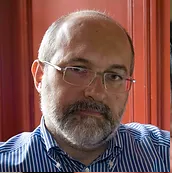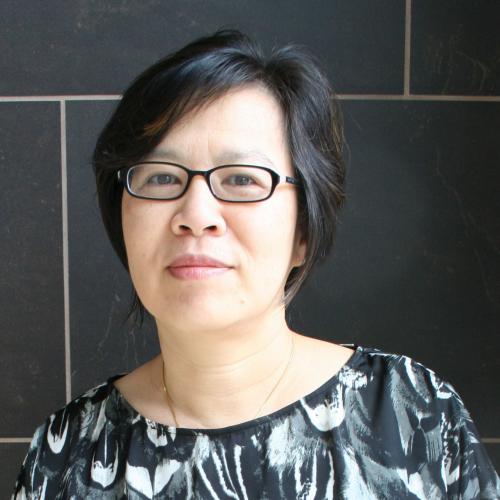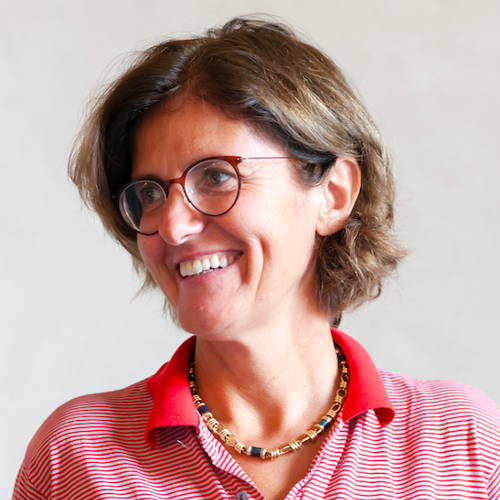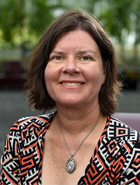
SCENARI E TENDENZE
GLÒRIA PÈREZ- SALMERÓN, Stichting IFLA Global Libraries Chair; IFLA President 2017-2019
Come realizzare i Soustainable Development Goals (SDGs): il ruolo delle biblioteche
In a global world, like our nowadays’ world is, access to information acquires new requirements to achieve. Librarians we have to suit our role as the main players to guarantee meaningful access to information, working on the new social context effectively and giving answers to society’s information demands. Libraries contribute to human development if we align ourselves with the Sustainable Development Goals this is the way to serve common goals and keep guarantee the future positioning of libraries and our society’s development. Governments have to consider libraries as motors of change, an investment to achieve local sustainability and contribute empower literate, informed and participative societies to global development.
Clicca qui per leggere la traduzione dell’intervento.
PIERLUIGI SACCO, Professore di Economia della Cultura, IULM
Regimi di produzione culturale e partecipazione: quale ruolo per le biblioteche?
Il dibattito sulla missione e sul ruolo delle istituzioni culturali tradizionali è oggi spesso viziato da una mancata comprensione delle differenze tra le modalità di funzionamento dei vari regimi di produzione culturale che coesistono negli ecosistemi culturali contemporanei. Le biblioteche stanno oggi conoscendo una vera rinascita sociale come luoghi di aggregazione e di empowerment culturale, ma tale ruolo fatica ad essere riconosciuto nelle politiche culturali a causa di una mancata comprensione del senso e delle potenzialità di questo fenomeno. Alla luce del quadro concettuale appropriato, tale ruolo diventa chiaro e può offrire indicazioni puntuali per una prossima politica culturale nella quale le biblioteche giochino un ruolo di primo piano, anche alla luce dei nuovi orientamenti delle politiche culturali europee.
CLARA M. CHU, Director and Mortenson Distinguished Professor, University of Illinois Library; President of the Association for Information Science and Technology (ASIS&T)
Libraries and Information Advancing SDG16 Peace, Justice and Strong Institutions
Information is vital to advance a sustainable world, and libraries and other information institutions and organizations play a critical role in responding to the United Nations 2030 Agenda. Libraries have long served as community anchors and trusted institutions, and as such, are positioned to be catalysts in identifying and solving society’s grand challenges. This talk illustrates how libraries and information organizations are undertaking transformational actions using information to advance Sustainable Development Goal (SDG) 16 to promote peace, justice and strong institutions. These actions include the Libraries for Peace Initiative and its associated projects, libraries working WITH communities in actions of, by and for the community, Information Action Briefs by the Association for Information Science and Technology (ASIS&T), among others.
PAOLA DUBINI, Università Bocconi e Coordinatrice Cultura dell’Alleanza italiana per lo Sviluppo sostenibile (ASviS)
Perché le biblioteche dovrebbero occuparsi di sviluppo sostenibile?
Le biblioteche condividono per missione gli obiettivi di sviluppo sostenibile 2030, un sistema interconnesso e articolato di obiettivi che riguarda tutti gli attori della società a livello internazionale. Le biblioteche hanno la possibilità di orientare le proprie politiche di comunicazione e di rapporto con alcune categorie di interlocutori sociali facendo propri alcuni degli obiettivi di sviluppo sostenibile, valorizzando così parte delle loro attività meno note al grande pubblico
MERRILEE PROFFITT, Senior Manager, OCLC Research Library Partnership
Wikipedia and libraries: partnerships to reach the future
The vision statement of the Wikimedia Foundation states, “Imagine a world in which every single human being can freely share in the sum of all knowledge.” If libraries had a shared mission statement, it would be something quite similar, in line with the UN SDGs for Quality Education and Reduced Inequalities. However, despite this shared mission, librarians sometimes discount Wikipedia as being unreliable, low quality, and as a competitor to library services. In so doing, librarians may be missing an opportunity to leverage the omnipresence of this gentle giant in online world.
Collaboration between the Wikimedia volunteer community and professionals in cultural heritage institutions including librarians has led to increased visibility and user engagement at participating organizations. This talk will highlight both the ways that OCLC has invested in partnerships with Wikimedia projects, as well as international success stories from academia, archives, museums and libraries that all share a goal of connecting communities of knowledge. The talk will touch on how libraries can involve in the Wikipedia community through programs and activities such as
- hosting editathons;
- OCLC’s Wikipedia + Libraries education for librarians project;
- contributing content and helping to bridge important gaps in Wikipedia (including OCLC’s effort to connect libraries to needed health information on Wikipedia);
- ensuring that library content is connected through the world’s biggest encyclopedia;
- introducing the Wikidata project, a place to connect free metadata and facts; and
- engaging with Wikipedians as allies in a quest to expand access to knowledge (with OCLC’s Project Passage as an example of the possibilities in this area).
A key UN SDG is Partnerships for the Goals, and libraries can definitely benefit from partnering the Wikimedia community to improve content quality while simultaneously ensuring that library services and collections are more visible on the open web. Wikimedia projects likewise benefit from the skills and resources provided by the librarians and libraries. OCLC’s direct experience as well other case studies presented in this talk will make a clear case for partnership in addition to providing exemplars.
-
Glòria Pérez-Salmerón
Stichting IFLA Global Libraries Chair, IFLA President 2017-2019
-

Pier Luigi Sacco
Professore di Economia della cultura, IULM
-

Clara M. Chu
Director and Mortenson Distinguished Professor, University of Illinois; President of the Association for Information Science and Technology (ASIS&T)
-

Paola Dubini
Università Bocconi e Coordinatrice Cultura dell’Alleanza italiana per lo Sviluppo sostenibile (ASviS)
-

Merrilee Proffitt
Senior Manager, OCLC Research Library Partnership